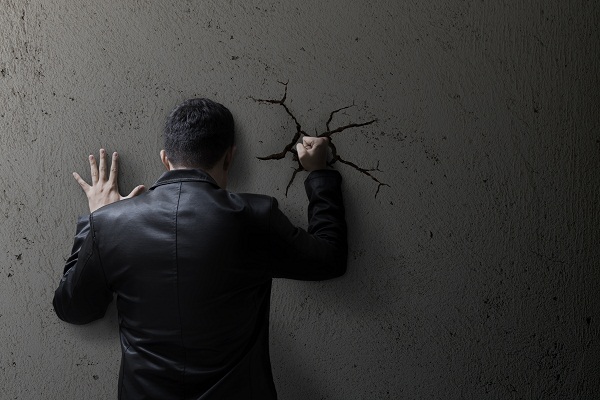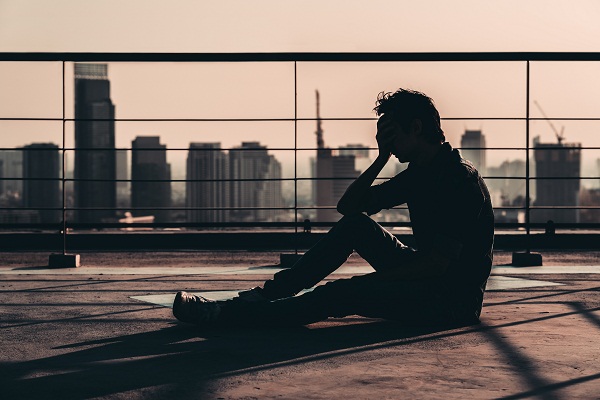Depression, a frequently misunderstood illness, seems to get media attention only when it’s associated with a celebrity’s death by suicide, or a celebrity makes controversial remarks about it.
Since Robin Williams‘ took his own life in 2014, other big stars like singers Chris Cornell and Chester Bennington also ended their lives in similar fashion.
In the Philippines, depression was on the news because of now controversial remarks by comedian, TV host, and actor Joey De Leon.
“Yung depression, gawa-gawa lang ng mga tao iyan. Gawa nila sa sarili nila.” (Depression is something people make up. Something they do to themselves.)
De Leon has since issued a public apology, explaining that he had wrong ideas about depression and that he was sorry for trivializing the pain of those suffering from it.
According to ManilaMed psychiatirst Tomas Bautista, MD, it’s not surprising for someone like Joey De Leon to make incorrect, or even insensitive statements about depression, which is still a widely misunderstood and even stigmatized disease.

“It’s a wake-up call. Persons like Joey de leon, whom we thought ay educated, ay wala palang alam sa depression. That’s one. Two, kasalanan ba ni Joey yun? E hindi naman niya specialty ang psychiatry.
“So for his part, wag na sana siyang makialam sa mga bagay na hindi naman siya ang expert. Ayoko siyang i-bash. Kung tingin nya na-hurt niya ang mga depressed na tao then humingi siya ng tawad. Para naman sa akin, wake-up call talaga yun for everybody,” said Dr. Bautista.
“Depression” as a feeling
Dr. Bautista clarified that the word “depression” means two things. Usually, like Joey De Leon, many people think depression refers to the low, bad feeling we get when we go through loss, defeat, or feel frustration; the pain of separation, or loneliness.
In that sense, every person can get depression. This type of depression can get really intense for example, when a loved one dies and a person grieves.
“ Pag nonpathological na depression, yes. Kasi ang depression is like you become depressed because you didn’t get what you want. Something happened that you didn’t expect. You lost somebody. May stages naman ang grieving, diba? End part ng grieving is depression and then acceptance na,” said Dr. Bautista.
This type of depression, no matter how intense or painful, eventually passes. It goes away, the person goes back to normal and moves on with his or her life.
This is not the case with pathological depression, which is not simply a bad feeling but an illness in the brain. It can last weeks, months, years, or even a lifetime. If untreated, there is an increased likelihood that the depressed person may commit suicide.

Depression as mental illness
While the feeling of depression may seem the same as the illness or pathology of depression, there are many differences between the two.
The biggest difference is that depression as an illness or disease is not just a low or bad feeling. Pathological depression has many symptoms.
According to Dr. Bautista, these symptoms include:
- Sadness, losing interest in activities the person used to enjoy.
- Changes in diet and appetite; either eating more than usual, or losing appetite altogether.
- Changes in sleep patterns. Either sleeping too much, or getting insomnia.
- Psychomotor agitation or retardation; either restless, impatient; or feeling heavy and moving slowly in completing tasks.
- Lack of focus, easily distracted.
- Persistent negative thoughts, pessimism.
- Feeling of hopelessness, worthlessness, that may lead to suicidal thoughts.
- A person has difficulty getting up in the morning, may feel that life is no longer worth living.
- He or she may wish to no longer wake up from sleep.
- In severe depression a person may consider and attempt suicide as a way to end his or her misery.
What causes depression?
As mentioned before, usually feelings of depression occur when there’s a stressful or traumatic life event. The causes of depression as a disease are less clear, although experts say there’s likely a combination of external, internal, and genetic factors.
Scientists have found that in depression, there’s a disruption in the normal interaction of neurons in the brain. The balance of neurotransmitters like seronotin and dopamine, the influence of hormones like cortisol and estrogen, these and more are believed to play their parts in depression.
Research continues as some studies show differences in the brains of people with depression, bipolar, and other mental illnesses, compared to brains of people who are “normal” or “neurotypical”.

How is depression treated?
It is widely accepted that a combination of psychotherapy methods (like Cognitive Behavioral Therapy) and medications like anti-depressants, mood stabilizers, and anti-psychotics are the best way to treat depression and bipolar illnesses.
Lifestyle changes also help: a healthy diet and proper nutrition, regular exercise, enough sleep, a balanced routine, and periodic rest and relaxation all contribute to easing the symptoms of depression.
Depression can become a serious, life-threatening illness if not treated properly. If you or a loved one is suspected to have depression, go see a mental health professional (psychiatrist or clinical psychologist) and get help.
ManilaMed has psychiatrists on staff who are ready to help patients understand, cope, manage, and treat depression. For more information, go to http://manilamed.com.ph/

